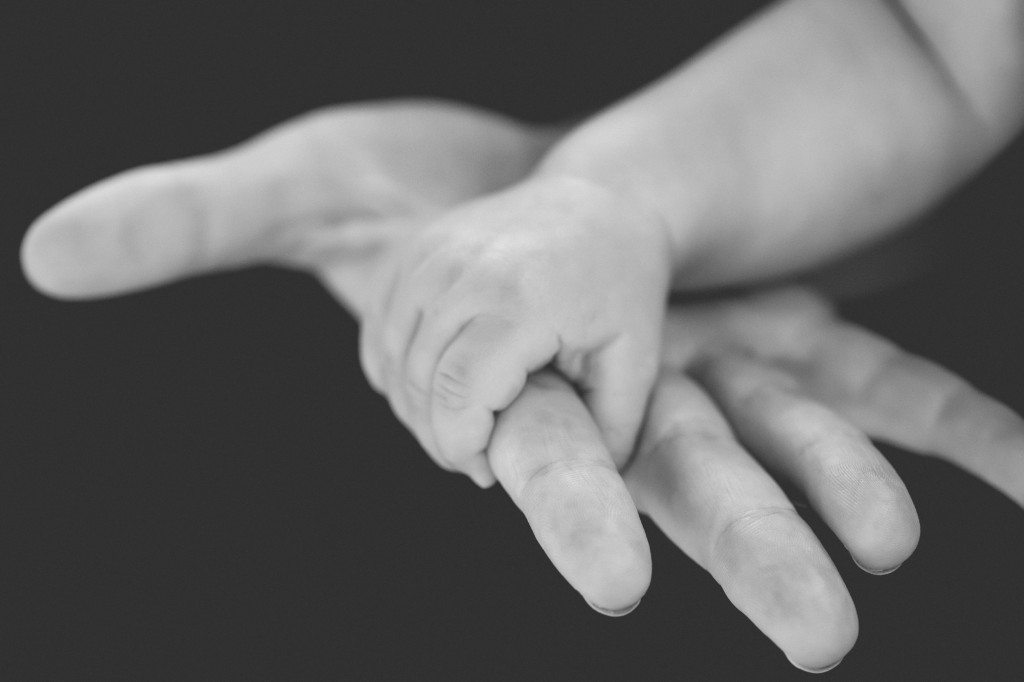Who is a custodial parent and what does that entail for the upbringing and legal standing of a child? A custodial parent typically holds the primary role in a child’s life after separation or divorce, providing for their everyday needs and making crucial decisions impacting their welfare. Our goal in this piece is to deconstruct the legal rights and duties of non custodial parent or parents, clarifying physical and legal custody, and exploring its influence on a child’s life. Our is to educate you about the intricacies of being the primary caregiver and decision-maker for your child, without getting lost in legal jargon.
Key Custodial parent Takeaways
A custodial parent is responsible for primary physical and often legal custody of a child, including daily care and significant decision-making regarding the child’s welfare such as education and healthcare.
Custody arrangements, which can be sole or joint for both physical and legal custody, significantly affect a child’s life, with courts often favoring joint custody to ensure both parents’ involvement unless it’s against the child’s best interests.
Resolving custody conflicts can involve mediation and legal intervention, and engaging with a family law firm can provide necessary legal expertise and support in navigating the complexities of custody issues.
What is a Custodial Parent?
The term “custodial parents” is highly significant in child custody scenarios. A custodial parent is essentially the one who has primary physical and often legal custody of a child, taking on the role of the main caretaker post separation or divorce. This role encompasses responsibilities that extend beyond just providing for the child’s basic needs. A custodial parent is entrusted with the child’s living arrangements, daily routine, and overall welfare, their everyday responsibilities and making them a cornerstone in the child’s life.
Furthermore, it’s the custodial parent’s duty to keep the non-custodial parent updated regarding important aspects of the child’s life, promoting open communication up to date information about the child’s activities and overall situation.
2 Types of Custodial Parenting: Physical and Legal Custody
Custodial parenting is fundamentally underpinned by two aspects: physical and legal custody. Physical custody primarily concerns where a child lives, with the two main types being joint physical custody and sole physical custody. In sole physical custody and joint custody cases, the custodial parent is the one who takes care of the child on a daily basis and is responsible for their daily needs.
Conversely, legal custody empowers a parent to make consequential decisions affecting the child’s welfare, including their education and healthcare choices. Thus, while physical custody is concerned with the child’s living arrangements, legal custody pertains to the custodial parent’s authority in the decision making authority in-making for the child’s welfare.
The Significance of Primary Physical Custody
In custodial parenting, primary physical custody plays an exceedingly important role. The child’s custodial parent is the one with sole physical custody means with whom the child resides the majority of the time according to the parenting plan, assuming responsibility for most of the child’s day-to-day needs. This arrangement allows the custodial parent to significantly influence the child’s upbringing and development by providing more parenting time, which is particularly crucial during their formative years.
Additionally, primary physical custody improves the child’s life by reducing disruptions and preserving routine and stability, benefits that become particularly evident after parental separation. The primary physical custodian typically is entitled to child support to aid in covering the child-rearing expenses and can also save on costs by not needing duplicate items for the child at each parent’s home.

Deciphering Legal Custody and Its Implications
Legal custody encapsulates the parent’s authority to make major decisions that impact their child’s welfare, spanning areas like education, healthcare, and moral upbringing. A parent wielding sole legal or joint physical custody of a child means he is given the exclusive prerogative to dictate the child’s upbringing, covering decisions about education, religious instruction, healthcare, and the establishment of family norms and guidelines.
In contrast share legal sole custody however, joint legal custody arrangements require parents to share the responsibility to make decisions concerning their child’s education, healthcare, and religion, necessitating collaboration and agreement in the child’s best interests. The determination of legal custody, whether joint or sole, can significantly affect a child’s life, with courts often favoring joint legal custody but granting sole custody when it best serves the child’s interests or the other parent is deemed unfit.
Understanding Joint Legal Custody
Joint legal custody is becoming increasingly common in many jurisdictions, with courts favoring this arrangement unless deemed unsafe for the child. This form of custody allows both parents to be actively involved in the child’s upbringing, contributing to the child’s well-being.
In joint legal custody, parents collaborate on decisions or may have specific domains such as education or religious upbringing, and day-to-day decisions can be made by the parent with physical custody at the time. However, joint legal custody is deemed inappropriate in situations of substance abuse, domestic violence, or where logistical circumstances such as distance make shared decision-making impractical.
The Rights and Duties of a Custodial Parent
Assuming the role of a custodial parent involves a range of rights and obligations, also known as custodial parent’s responsibilities. These responsibilities encompass:
Providing for the child’s basic needs such as food, clothing, and shelter
Ensuring that the child attends school and medical appointments
Being aware of how the child spends their time, including maintaining appropriate daily hygiene and participating in activities
Providing transportation for the child’s activities
In addition, the custodial parent holding primary physical in most joint custody orders typically has the right to claim child tax benefits such as the child tax credit, resulting in considerable annual savings. However, when a joint custody order doesn’t specify which parent can claim the child as a dependent for tax purposes, both custodial parents should carefully review the IRS’s rules before claiming the child.
Decision-Making Power in Sole Legal Custody
Sole legal custody bestows upon one parent the exclusive authority to make all significant decisions for the child, eliminating the need to confer with the other parent. This form of sole legal custody means spans decisions related to education, medical care, and religious upbringing.
A custodial parent with sole physical custody has the sole authority to make significant medical decisions for the child without requiring the other parent’s input or consent. The custodial parent’s ability to independently make these major medical decisions regarding the child can minimize communication and potential conflicts with the non-custodial parent. Sole legal child custody can offer consistency in the child’s life, especially when parents hold conflicting belief systems.
A parenting plan must clearly outline the assignment of sole legal custody, detailing the rights encompassed by this custody of child arrangement. Without legal a custody agreement, the non-custodial parent does not have the right to make decisions for their child.
Navigating Child Custody Terminology
Entering the realm of child custody can be daunting due to the extensive terminology involved. Here are some key terms to understand:
Custodial parent: Responsible for overseeing the majority of the children’s care
Non-custodial parent: Has scheduled visits with the children
Joint custody: Both parents share custody of the children, with neither being labeled specifically as custodial or non-custodial.
Non custodial parents: A term referring to parents who have scheduled visits with their children but do not oversee the majority of their care.
This arrangement ensures that both parents maintain involvement in religious education throughout the children’s lives.
While courts currently show a preference for shared physical custody, obtaining primary physical custody is still an option in contested cases. It’s also worth noting that unmarried parents, grandparents, and others closely related to one parent or the child may be entitled to seek legal custody or visitation rights, especially if they have been acting as caretakers.
Establishing Custody: Court Procedures and Parental Agreements
The process of a court order and establishing custody of a child can follow different paths, contingent on the individual circumstances of each case. Parents can negotiate custody arrangements outside of court, creating a parenting plan that specifies the division of custody, potentially reducing legal fees and court costs. However, when awarding custody in a court fight, courts consider several factors, such as:
The stability of each parent
Their ability to provide a home
Their involvement in day-to-day activities
The child’s relationship with each parent
The welfare of the child
In cases of joint custody, only one parent may be designated as the custodial or residential parent if they house the children for the majority of the time, as determined by the court. Sole legal custody is granted in cases where there is clear evidence of the potential custodial parents inability to cooperate. It can also be awarded if a parent is deemed unfit to care for the child.
The Impact of Custody on a Child’s Life
The influence of custody arrangements on a child’s life is of paramount significance. For instance, the designation of the primary residential parent can impact where the child attends school, often determined by school zoning laws, and can become a cause for dispute, particularly if the child spends both parents live far from each other. When parents have equal time with the child regularly, either parent’s address may be used for school zoning, and involvement in extracurricular activities can be influenced by the arrangements leading to potential disagreements.
Joint legal custody may foster a child’s healthy self-esteem, preventing psychological issues by ensuring the child feels loved and important to both parents, despite challenges in participating in school activities due to parental conflicts. However, the child’s living conditions and standards, including social opportunities and the consistency of their environment, can be negatively impacted by the custody arrangement, potentially leading to reduced quality of life and stability. The introduction of new partners and the complex dynamics they bring to joint custody orders, along with the serious issue of parental alienation, may require legal intervention to protect the child’s best interests.
When Parents Disagree: Resolving Custody Conflicts
Custody conflicts frequently lead to stress and emotional upheaval for the whole family. However, there are several methods to resolve such conflicts. Mediation is a key method of alternative dispute resolution for custody conflicts, designed to help parents reach an agreement without the pain and expense of court battles. In mediation, parents work with a mediator who facilitates compromise on legal and physical custody disputes but does not make decisions for them.
Custody conflicts often arise from disagreements over living arrangements, who the court determines the child should be around, and differences in parenting styles. In complex custody cases, focusing on the child’s well-being is paramount, and legal representation can expedite the resolution of these disputes. However, significant life changes may necessitate a change in primary custody, with the court’s approval required for modifications to ensure alignment with the child’s best interests.
Engaging with a Family Law Firm
The intricacy of child custody can be intimidating, making the expertise of a family law firm essential. Engaging a family law firm is particularly important when dealing with complex child custody issues, such as seeking or contesting full custody, due to the specialized legal knowledge required.
Family law attorneys offer legal counsel on custody laws, aid in the full custody hearing process, broker custody and visitation agreements between both custodial parents and the non custodial parent, and manage legal paperwork and court appearances. Moreover, attorneys offer emotional support, reduce legal process tensions, and bring neutrality and objectivity to custody cases, which is vital when emotions are involved.
The advanced knowledge and experience with the legal system that family law firms provide can substantially increase the likelihood of achieving a better solution in custody disputes.
Understanding the complexities of child custody arrangement is crucial for making informed decisions that protect the best interests of your own child’s future together. From navigating the terminology to understanding the rights and responsibilities of a custodial parent, and from resolving custody conflicts to engaging professional legal help, every step is significant. Remember, no matter how challenging the journey might seem, the ultimate aim of the custodial parent is to ensure the well-being, stability, and happiness of your child.
Frequently Asked Questions
What does custodial parent mean?
A custodial parent is the one who the court orders the child to live with most of the time, providing the child’s primary home and taking care of their daily physical and emotional needs. The non-custodial other parent is the custodial who physically has the child less than 50 percent of the time.
How is custodial parent status determined in California?
The custodial parent in California is granted custody as determined based on the best interests of the child, taking into account statements from both parents and suggestions from a custody evaluator. The judge’s decision ultimately prioritizes the child’s well-being.
What is the meaning of non-custodial parent?
Non custodial parents are the parents who do not have primary custody of the child, but still maintain rights and play an important role in the child’s life. This may occur after a separation or divorce when the children reside with the other parent for the majority of the time.
What is the difference between physical and legal custody?
The main difference between physical and legal custody is that physical custody refers to the child’s living arrangements and daily care, while legal custody involves the right to make important decisions about the child’s health and well-being. This distinction is crucial for understanding the responsibilities associated with each type of custody.
What is the significance of primary physical custody?
Primary physical custody is significant as it enables the custodial parent to have a major impact on the child’s upbringing and provides stability and continuity in the child’s life.
What is a custodial mother?
A custodial mother refers to a mother who has been granted physical custody of her child or children. This means she has the legal right for her child or children to reside with her the majority of the time
Can both parents be custodial parents?
Yes, both parents can be custodial parents in California Family Law. This is known as joint physical custody, where both parents share the right to make important decisions for their child and the child spends time with both parents for significant periods. However, the specifics can vary depending on the circumstances of the case.



